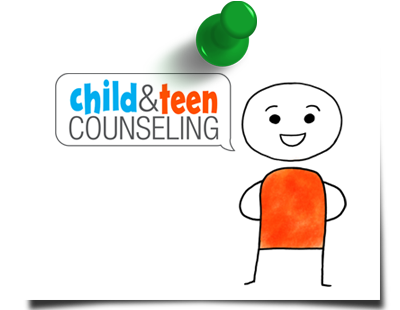Speaker 2
Hi, my name is Adrian Navarro Gonzalez and I am a marriage and family therapist trainee here at Child and Teen Counseling, supervised by Kentucan hi, my name.
Speaker 3
Is Robert Jimenez and I'm also a marriage family therapist trainee at Child Teen Counseling, supervised by Kent TussaN. So for this today's video we're going to be talking about adolescent therapy and kind of what it entails, what it means, what it can mean, stuff like that. That so the first part I want to focus on is the benefits of therapy for teenagers in therapy and I think how limitless they are. In adolescent therapy, teens can develop healthy communication skills that they can use for the rest of their lives or they can begin building the foundation for a better relationship with themselves and others that will go on to help them with the rest of their lives. By exploring what makes them uncomfortable, they learn boundaries, how to set those boundaries and when other people are breaking those boundaries or pushing those boundaries. And I think through therapy teens can begin to develop a higher self esteem and learn positive self regard.
Teens are going through a lot of changes, especially emotionally. They've got 1ft in the world of adults and 1ft in the world of children. There's lots of self exploration, questioning and deciding what it is they like, what's important to them, learning how to socialize, distinguishing between a good relationship versus a bad relationship and really learning how to set boundaries.
They're on the road to developing their own unique adult identities which takes time and can sometimes cause friction along the way.
Speaker 3And I think it's important to remember that brain development associated with adolescents starts at around ten to twelve years old and it ends around 25. If you can believe that, that means impulse control and emotional regulation are all underdeveloped through high school and college. This is why some of your adolescent choices might confuse you even if they're completely logical to him or her.
Speaker 2
To a parent, sometimes it might feel like your kid is from a different planet. At CTC, we speak teenager and parent. We act as the bridge between child and parent. We're in the unique position to have the patients that may be both sides black. As therapists, we model how to communicate and how to listen to one another. We spend time earning the trust of your team and we have a genuine interest in getting to know them. Our goal is to be helpful to both parent and child and help them reflect on how to be more communicative to find a healthy, mutual understanding between parents and children.
Speaker 3
So if you're seeking therapy for your team, we hope you consider Child Teen Counseling. We're a nonprofit 501 organization with the goal of making a therapy affordable for all people of all budgets. So go to the contact page here on our site to get in touch with us for a free consultation. If we're not the right fit for you. Don't worry. We will help you direct you to the support you need. Thank you for visiting Child Teen Counseling.org.
ADOLESCENT THERAPY
One Foot in Childhood, One Foot in Adulthood
Parents considering adolescent therapy should remember that while teens are still technically “children,” they’re in the transition period towards adulthood. Your teen will act impulsive and impatient as a 3-year-old one moment. The next moment they’ll spout out some amazing insights about world affairs. Tremendous (incredible, unbelievable, off-the-charts) brain development is happening within teens. It’s difficult, sometimes impossible, for adolescents to sustain the maturity that you so desperately want your kid to grasp.
We Speak “Teen,”We Speak “Parent”
In adolescent therapy at Child & Teen Counseling we specifically train our therapists in this “growing up” process. We treat your teenager from a place of respect and understanding. That means that we equip your teenager’s therapist to develop a healthy therapeutic friendship with your kid. We “force” nothing in our sessions. And we have a special knack for knowing just how to reach your kid – no matter how “far gone” or unreachable you think he/she is. The best news is that we don’t keep these tools a secret from you – we help you to learn how to reach your “unreachable” kid.
Rapport Building and Connection
One of the things we do best at CTC is knowing how to keep teens interested and engaged. It may be hard to believe, but we are incredibly successful at having fun! From the fun, comes a smile, then trust and meaningful conversation. After a while (without him/her even knowing it) we are on the road to having a successful therapeutic journey. This journey ends when your teen has learned how to help him/herself maintain an emotionally and mentally healthy life.
To create this trust, it is important for everyone to understand that what your teenager says in his/her private therapy sessions remains confidential. However, if there is an important topic that comes up, your counselor will work with your kid to be able to address it with you directly from a place of respect and collaboration. Empowering your teen to find his/her own voice helps to grow the confidence and maturity that you are hoping for in your kid.
Need some more help understanding your teen? Check out the archive of helpful video blogs on the side of our sister organization Teen Therapy Center.
